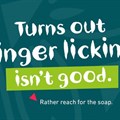#YouthMonth: Where is social media headed among SA youth?

What are three of the latest social media trends for the SA youth?
Social media trends change quite regularly, but that is the nature of social, to constantly change things up, right?
What comes to mind is the increase in content creators (especially among the youth). I believe we’re living in times where, if your profile doesn’t say ‘content creator’, then what are you even doing on social media?
I also like a good story, and IG & FB Stories are not slowing down. They are becoming more interactive and engaging - Facebook Stories boast an approximated 500 million users daily!
And, of course, video. We know that video content is king. I think it’s necessary that I mention TikTok here; there is a growing trend among SA brands to use this platform to execute great video content.
What do you think brands need to do to appeal to a youth audience in the new norm?
Brands need to create a content strategy with the consumer in mind. And, because the youth are quite savvy and often named ‘the creators’ themselves, customer-centric content is more appealing. In the same breath - advocating for user-generated content is also a great step.
In addition, it’s important that brands rethink which platform they spend most of their time on. We’ve often heard the phrase: less is more. And I’m not saying that brands should only have a social media presence on one platform, but do an audit to see where your target market spends most of their time and go hard there - let’s take, for instance, Nando’s on Twitter, Savanna Cider on Facebook and Twitter, and Chipotle on Twitter and TikTok.
What are the most popular online platforms for SA youth and why?
Without even thinking about it: Facebook, Instagram, and Twitter. Facebook is the most used platform globally. Instagram, apart from being a vanity contest, is also great for creators, and Twitter, well, because you hold all the power through that keypad on the cell phone in your hand. I also want to give an honorary mention to TikTok - it’s booming, baby!
How has social media changed the way youth perceive brands during the Covid-19 pandemic?
Since the unprecedented lockdown efforts government made to try and manage the Covid-19 situation, social media has seen an increase in usage, and it has become an essential tool for people to connect. Yet although there has been an increase in online engagements, right now context is everything. The youth know which brands they look to for a particular takeout, whether it’s humour, or the way the brand lends a helping hand, or just being that smile-giver we all need right now…context is everything.
Can you give two examples of some great social campaigns over the past few months?
For me, the best social media campaigns I can think of are the tactical ones. Or the ones that got organic traction through a good #hashtag. With that said, right now, I can’t get over Savanna Cider’s Virtual Comedy Bar. It’s great because they are giving comedians a platform during the lockdown and hosting a virtual stand-up comedy show, and it works! And Burger King France are making fun of Maurizio Cattelan’s $120,000 banana, in a campaign called “careful what you swallow,” where they show the world’s most expensive fruit compared to one of their fries. It’s simple but so clever.
What are your thoughts around the future of social media and the new trends that will emerge for the youth after the pandemic?
The future of social media looks great. The youth are looking for a brand they can relate to. So, instead of going online to consume branded content, they want to feel like they are part of a brand’s story. For example, Chipotle on TikTok is establishing a real personality by showing their audience what happens behind the scenes in-store in a fun and humorous way. In essence: give the people what they want. Consumers will respond better when the content does not feel like it’s ‘branded push-messaging’.
@chipotle ##servingrealness ##chipotle ����
♬ High Tech Timer - TikTok Original
I don’t know whether I speak for the youth as a whole, however, there is a clear indication of smaller communities engaging with each other online. Take the #Over30 on TikTok, for example. I believe that as South Africans we are light-hearted, and we don’t necessarily take ourselves too seriously – we like having a laugh at our own expense and finding the humour and fun in most things, and that’s why people’s social feeds are curated with niche interests.
































